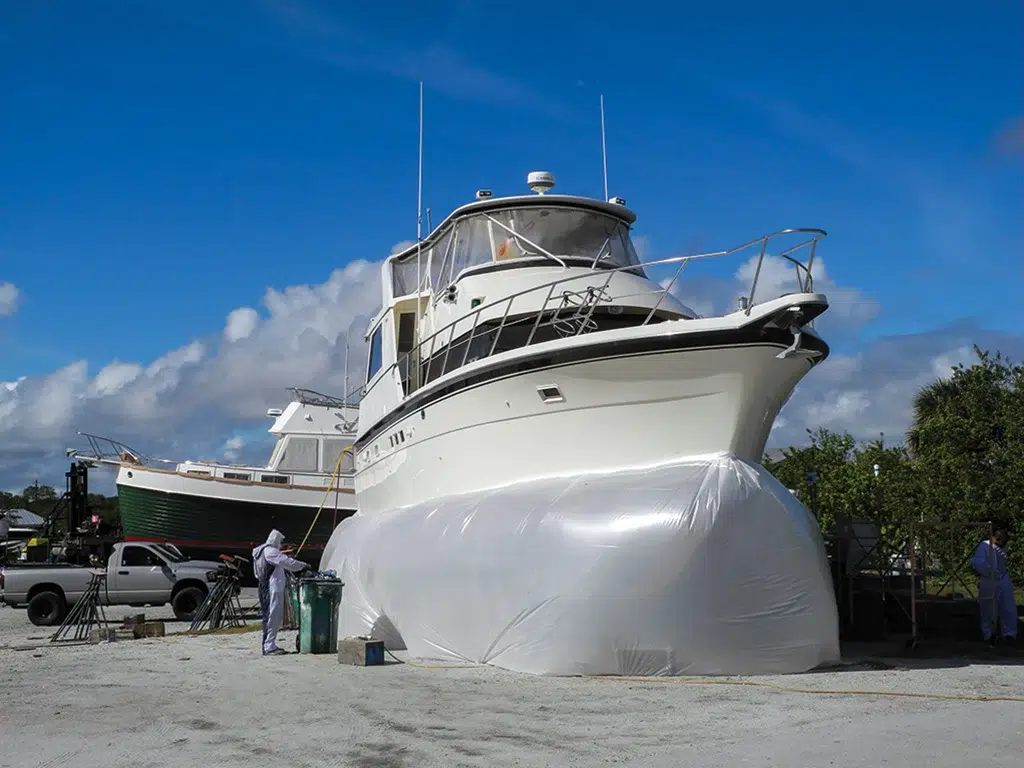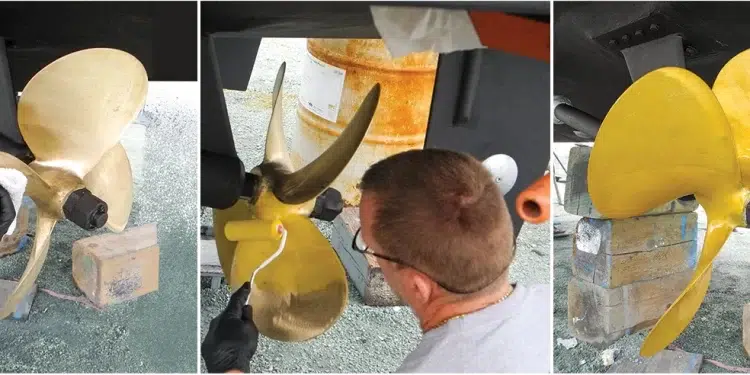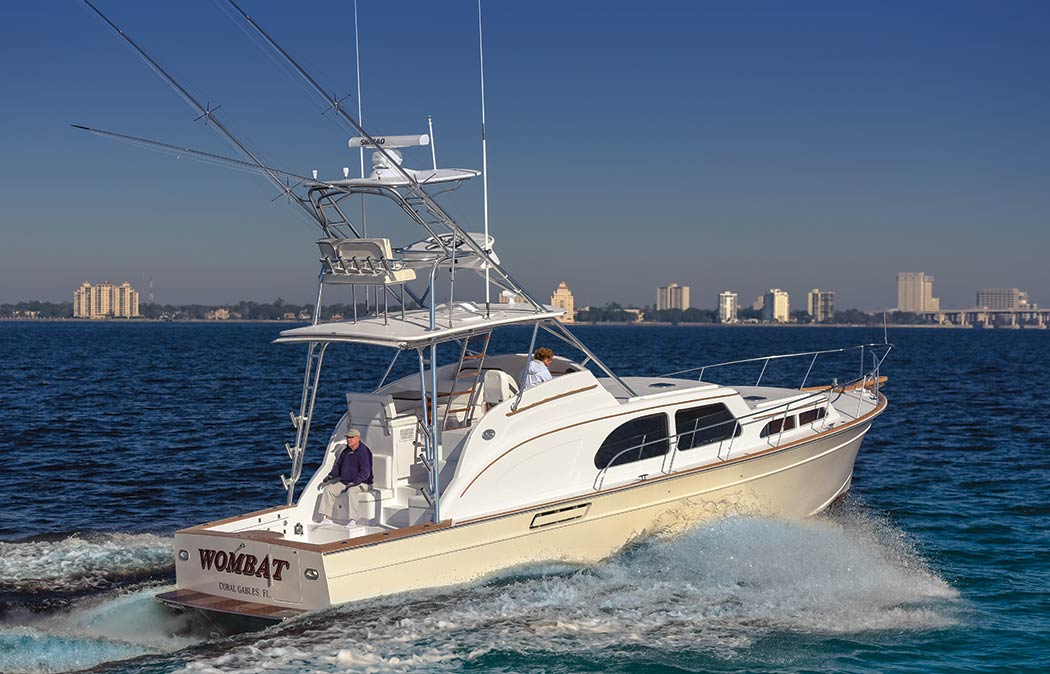The Secret to Speed? A Spotless Boat Bottom
Below the waterline of your boat is one big target for sea creatures. These barnacles, sea grass, tube worms, and general slime can quickly grow into a fuzzy carpet that slows your glide. A clean boat bottom not only looks nicer but can be the difference in fuel and equipment efficiency. So what’s a boat owner to do?
Let’s start with clear terms to understand how speed is affected by a clean bottom. Miles Per Hour (mph) is more accurately known as your speed in knots. Miles Per Gallon (mpg) considers the amount of fuel burned to cruise at an optimum speed. It helps to understand what is optimum versus the speed that you desire. If you are lucky, this may be the same.
WOT is Wide Open Throttle, often wasting fuel and not necessarily getting the best mileage possible. Many boat owners will consider slowing a bit less than WOT to achieve better fuel economy. If you reduce the rpms a mere 200 or so, then you may slow about 1 knot. Does that really matter?
So what else can you do to make your boat slide across the water easier? You may think that since water is wet and slippery, how can we improve on that?
Hull Preparation
The hull on planing boats starts with a V to cut through the waves. Then it flares out in the stern to a flatter concept. This allows the boat to get up on top of the water to go faster depending on the horsepower aboard. The hull design and horsepower contribute to the builder’s designed speed—at perfect conditions right from the factory. Now consider the condition of the hull itself.
Dirt and slime create more resistance to that slippery water your boat is running through. The most pristine waters can foster marine growth. Barnacles are obvious, but what about algae or seaweed? Choose an anti-fouling paint that works well for the waters you call home port and lasts longer than the lower price alternative.
Barrier Coat and Anti-fouling Paint
When hauling the boat for seasonal bottom job cleaning, check the existing paint for wear and adhesion. Is it smooth or has the bottom of the boat been painted too many times without taking the old paint off entirely? If the paint shows too many moon craters or high and low spots, then the bottom may have to be blasted to remove everything down to the original gel coat.
Now that your hull has been properly prepped, it’s time to apply a barrier coating and, finally, good anti-fouling paint. The decision of what type of paint to use is dependent on the local waters in which you plan to boat and the kind of sea creatures that grow in your area. Ask other boaters what anti-fouling paint they favor. Check with your local yard experts too.
Subscribe Here for Expert DIY Boating Insights and Tips:
More Than the Hull
Don’t forget that your running gear includes props, rudders, shafts, and trim tabs which all need protection from marine growth too. But here you will use a different coating than the hull anti-fouling paint. Think about friction of the water rushing under the hull which can wear off fresh marine growth. The friction on the rotating propellers is much greater than the hull and requires a different type of anti-fouling coating.
An etching primer is followed by a fouling-release coating applied to the running gear to reduce the chances of marine growth attaching to the surface. If they do attach, the growth will slip away once the boat is underway. Proper prep includes having the running gear roughed-up with an 80 grit sander to remove all old paint and marine growth. Clean off any dust and oil before applying a two-part etching coating. The final clear coat is the magic that reduces marine growth from attaching.

Use It or Clean It
The best way to keep your hull clean is by driving away from your dock. But if you can’t find the time to keep those critters from settling in, then a diver can do a little maintenance in between. In addition to a gentle cleaning of the hull and running gear, a diver can also keep the depth gauge transducer free of marine growth.
Underwater lights are attractive and can attract bait fish to the stern of the boat. Ask the diver to keep the lenses clean too.
Your bottom is clean, and the hull and running gear are properly prepped. Get the boat up on plane, feel the ride, and watch the SOG (Speed Over Ground) compared to the rpms and fuel consumption. Adjust your trim tabs, angle the boat across the wave action, and experiment with the rpms. A clean bottom will improve your speed efficiency, letting your boat perform as it was designed. It is now up to the helmsman to achieve best results.
– by Chris Caldwell
Visit Captain Chris’ Website Here















